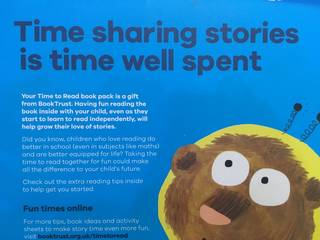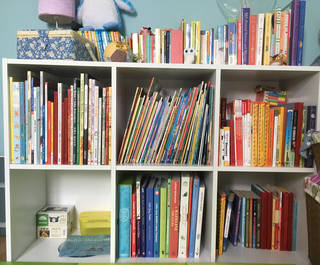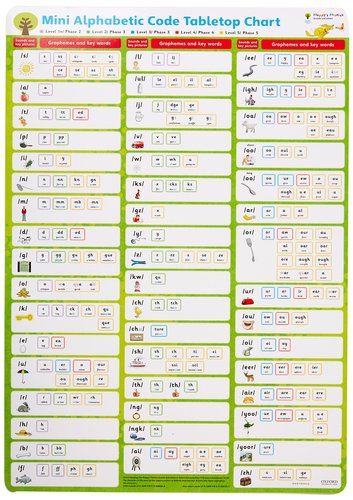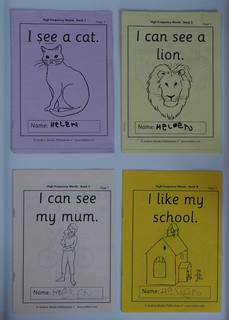Helen's school is pretty keen on getting the children reading.
On her very first day Helen came home with a free book, The Bumblebear. This is nice enough, but I don't see why the Book Trust needs to commission books given the variety of children's books already available. And giving every reception child in England exactly the same book seems a bit wasteful - if they gave out six different books, the children could share them with one another — and there'd be a bit more variety in the charity shops.
On her second day she came home with a book bag and a reading diary. The bag is for borrowing books from the reception library, which seemed a bit limited — I suspect we'll just keep on using the council library, which has a much bigger range of books (and will have a vastly bigger one once it's back to full size in the new Westgate Centre). The reading diary might come into its own once Helen is reading herself.
And on her third day she came home with a Travelling Book Fair pamphlet advertising some books which we could buy through the school. Nothing that tempting, and all the books I checked are cheaper online anyway. [As with the toothbrush and toothpaste set she brought home, I worry here about the dangers of schools accepting corporate sponsorship.]
None of this is terribly useful for us, but then we're not its primary target. Nor indeed, are most of Helen's friends. Some, mostly with humanities academics as parents, live in homes where books are physically central, taking up a good part of the house: Frieda and Rachel and Matilda and Dylan and Ruan. Others have parents whose jobs might not centre on books but who clearly read extensively: Parker, Imogen, Martha, and so forth. And I haven't seen a house yet without at least a few hundred books. (The amount of reading people actually find time for is hard to judge, mind you, and electronic libraries are invisible.)
In Helen's second week they started systematic reading/writing instruction, using a sensible phoneme-centred phonics scheme (I checked this way back when we were looking at schools). They have put some effort into making this fun, going by Helen's response but also by an "introduction to phonics for parents" morning I went to, where we observed a Year 2 class. The phonics is supplemented by one-on-one reading lessons, with extra (specialist?) staff brought in from outside the class to help, working through a series of "High Frequency Words" booklets that emphasise "tricky" words but also teach sentence structures, punctuation, and so forth. The children get to work through these at their own pace. (These booklets come home with her, so her "homework" involves reading these to us - which we do once per booklet, so about five minutes a week.)
Helen is enjoying this and is keen to learn now, where she wasn't before. I've been doing phoneme-grapheme mappings with her whenever she showed an interest in written language, but she's previously declined my offers to teach her to read — now she's just spent most of a Sunday morning half-reading books with me, practising letter shapes by herself, and discovering that she can put labels on her drawings... Her teacher told her she was "a secret reader" and I suspect she'll be reading Frog and Toad level books within a month.
"when you follow the principles by which writing systems are constructed and teach the English writing system appropriately, 4-year-olds can easily learn to read in about 10 to 12 weeks." (Diane McGuinness, Early Reading Instruction)
There should have been a "most" in that, of course, and I worry a bit about the children who aren't ready for this yet, perhaps because they're half a year younger, perhaps because they don't have the motivation, perhaps because they're not ready for this kind of instruction. In most of Europe children start formal reading instruction several years later than in the UK without any harm to their education. (Though they don't have to deal with an orthography which makes English "not the worst imaginable choice as a medium of international communication".)





I tried to find that good looking 'mini alphabetic code tabletop chart' and it's £188 on amazon! If anyone knows of a good alternative (or pdf version), I would be grateful...